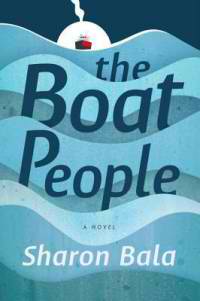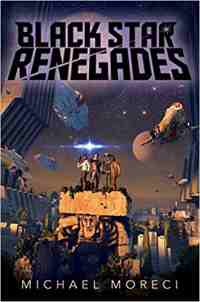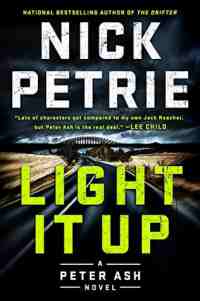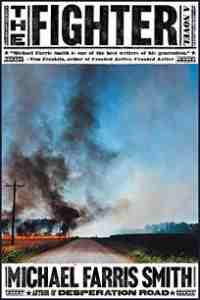The Boat People by Sharon Bala
 Wednesday, March 7, 2018 at 8:29AM
Wednesday, March 7, 2018 at 8:29AM 
Published by Doubleday on January 9, 2018
The Boat People explores the plight of Tamil refugees from Sri Lanka who have traveled to Canada on a freighter. Two key characters are Mahindan and his young son. Much of the novel’s drama is driven by their uncertain fate as they endure detention and admissibility hearings to determine whether they will stay in Canada or be deported to a country where they are likely to be killed. When news of the freighter’s arrival is reported, nationalists carrying “Go Home Terrorists” signs arrive to help make their lives a little more miserable. It seems that some people in Canada shares with their counterparts in the United States a lack of compassion for people born outside the nation’s borders.
The Boat People uses Mahindan to represent the hopes and fears of refugees. Mahindan has great hopes for Canada until he realizes that so much of the country views him as a cockroach. At the same time, scenes of home life in Sri Lanka show how nationalism and a demand for ethnic purity has given Mahindan no choice but to leave. How ironic it is to flee a nationalist movement in one country, only to be rejected by nationalists in a country that claims to be fair-minded.
The other two central characters are native Canadians whose ethnicity becomes an important plot point as the story develops. Priya Rajasekaran, a Canadian whose family came from Sri Lanka, is a third-year law student interning at a Canadian law firm. A senior partner recruits her to help the refugees, despite her lack of interest in refugee law (she prefers corporate mergers and acquisitions). The partner chose Priya because he incorrectly assumed that she speaks Tamil. Being forced to help people from her ancestral land forces Priya to reassess the kind of professional life she wants to live.
Grace Nakamura is a newly appointed adjudicator, transferred from a different government department as a favor to a cabinet minister. The cabinet minister shares an intelligence briefing with Grace, claiming that half the Tamil refugees are Tigers, members of the separatist group that the government regards as terrorists. He wants Grace to disabuse the world of the notion that Canada is “a soft touch.” Like some American politicians, the cabinet minister wants to blame all Canadian crime on immigrants and isn’t afraid to lobby an adjudicator whose job is to make neutral decisions that are uninfluenced by politics.
The cabinet minister and a prosecutor want all of the boat people gone and have no interest in separating Tamil terrorists (if there are any among the refugees) from victims of the Tigers, including Mahindan, who worked as a mechanic and was forced to repair vehicles for the Tigers. In the government’s view, he enabled terrorists. In Mahindan’s view, he was trying to survive so he could make a life for his son.
Grace is the granddaughter of a Japanese immigrant, a fact that occasionally gives her pause when she is told to keep immigrants out of Canada. Grace’s mother, who is seeking redress for her interment during World War II, also gives Grace reason to think that national origin should not determine how a government treats the people within its borders. Yet Grace is so determined to blend in with white Canada that she resents her grandmother telling her twins about the difficulties that the Japanese faced as Canadian immigrants. The war between Grace’s better instincts and the fear that the cabinet minister arouses with his poisonous rhetoric create a conflict that makes Grace an interesting character.
The Boat People makes the point — and it can’t be made too often — the terrorism often grows out of oppression. One way to end terrorism is to end the oppression that breeds it — and the best way to avoid terrorism in a country like Canada is to avoid oppressing the people within the country’s borders.
Several scenes in the story are moving, and they showcase the author’s best writing: a flashback to the birth of Mahindan’s son and the consequent death of his wife; the separation of Mahindan and his son in detention; the son’s trauma when he’s taken to foster care, his hatred of unfamiliar Canada and his longing for a home that has been bombed into oblivion; the story that Priya’s uncle tells of fleeing from the Sinhalese; the stories Grace’s mother tells about Japanese internment.
All of the central characters are multifaceted and conflicted. The plot leads to an unresolved ending, which might be disappointing for some readers, but I appreciated the opportunity to imagine my own ending. The Boat People is a timely novel about a sensitive social and political issue that should engage open-minded readers who care about the larger world.
RECOMMENDED



